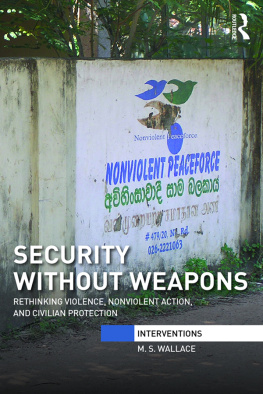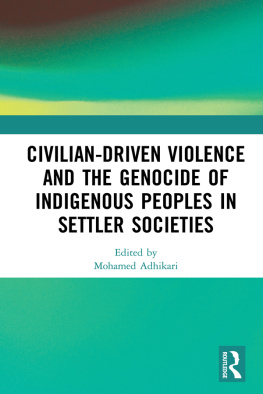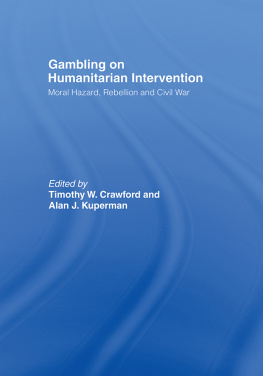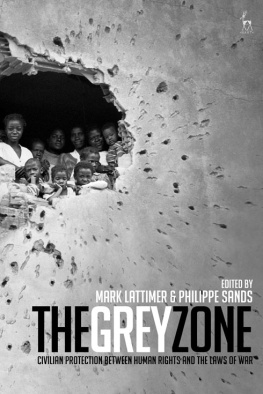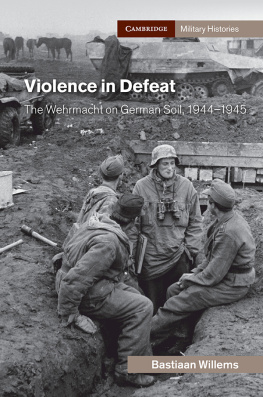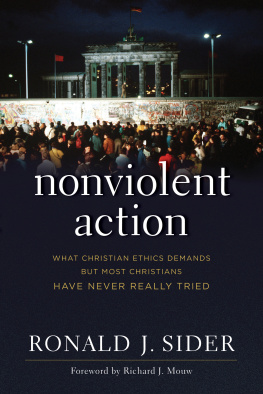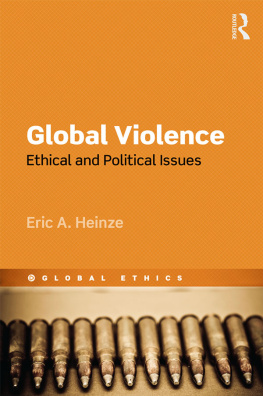M. S. Wallace - Security Without Weapons: Rethinking violence, nonviolent action, and civilian protection
Here you can read online M. S. Wallace - Security Without Weapons: Rethinking violence, nonviolent action, and civilian protection full text of the book (entire story) in english for free. Download pdf and epub, get meaning, cover and reviews about this ebook. year: 2016, publisher: Routledge, genre: Politics. Description of the work, (preface) as well as reviews are available. Best literature library LitArk.com created for fans of good reading and offers a wide selection of genres:
Romance novel
Science fiction
Adventure
Detective
Science
History
Home and family
Prose
Art
Politics
Computer
Non-fiction
Religion
Business
Children
Humor
Choose a favorite category and find really read worthwhile books. Enjoy immersion in the world of imagination, feel the emotions of the characters or learn something new for yourself, make an fascinating discovery.
- Book:Security Without Weapons: Rethinking violence, nonviolent action, and civilian protection
- Author:
- Publisher:Routledge
- Genre:
- Year:2016
- Rating:5 / 5
- Favourites:Add to favourites
- Your mark:
Security Without Weapons: Rethinking violence, nonviolent action, and civilian protection: summary, description and annotation
We offer to read an annotation, description, summary or preface (depends on what the author of the book "Security Without Weapons: Rethinking violence, nonviolent action, and civilian protection" wrote himself). If you haven't found the necessary information about the book — write in the comments, we will try to find it.
Few questions of global politics are more pressing than how to respond to widespread violence against civilians. Despite the efforts of Responsibility to Protect (R2P) proponents to draw attention away from exclusively military responses, debates on humanitarian intervention and R2Ps Third Pillar still tend to boil down to two unsatisfying options: stand by and do nothing or take military action to protect civilians essentially using violence to stop violence. Accordingly and given disagreement and uncertainty regarding moral claims, as well as the unpredictability of military effectiveness this book asks: how can we counter violence ethically and effectively, taking action consistent with our particular moral commitments while also nurturing difference and enacting responsibility towards multiple others?
After evaluating the pragmatic and ethical failings of military action, the book proposes nonviolent intervention as a third unarmed, on-the-ground option for protecting civilians during humanitarian crises. In the empirical section of the book, focusing on the discursive and psychological conditions enabling violence, Wallace analyses the mechanisms by which Nonviolent Peaceforce an international NGO engaged in nonviolent intervention/ unarmed civilian peacekeeping (UCP) was able to protect civilians and prevent violence, even if on a limited scale, in the broader context of Sri Lankas war/counterinsurgency in 2008.
Both philosophically innovative and practically useful to those working in the field, the book contributes to a range of literatures and debates: from just war theory and poststructuralist ethics to nonviolent action and conflict transformation, and from humanitarian intervention, R2P, and civilian protection to strategic theory and discursive and psychological theories of violence.
M. S. Wallace: author's other books
Who wrote Security Without Weapons: Rethinking violence, nonviolent action, and civilian protection? Find out the surname, the name of the author of the book and a list of all author's works by series.

